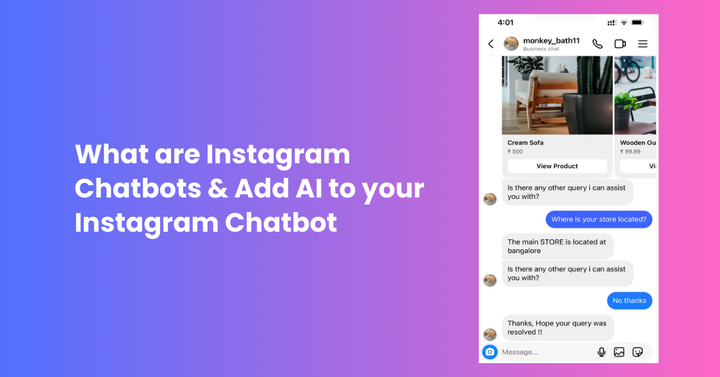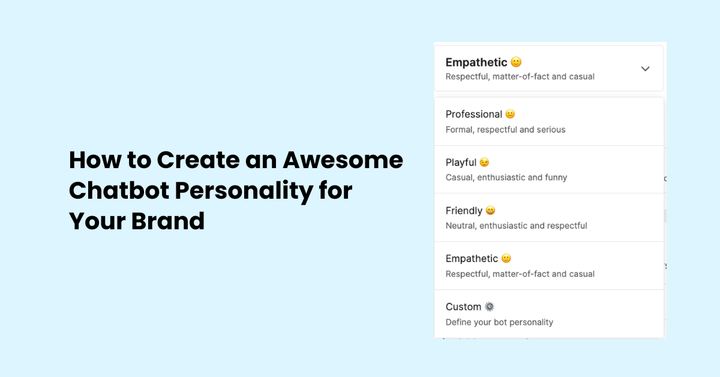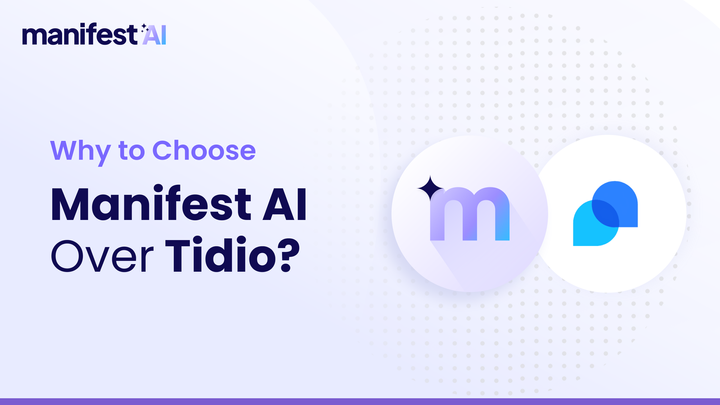How AI Hallucinations Sabotage Your Ecommerce Brand Value & Ultimately Sales
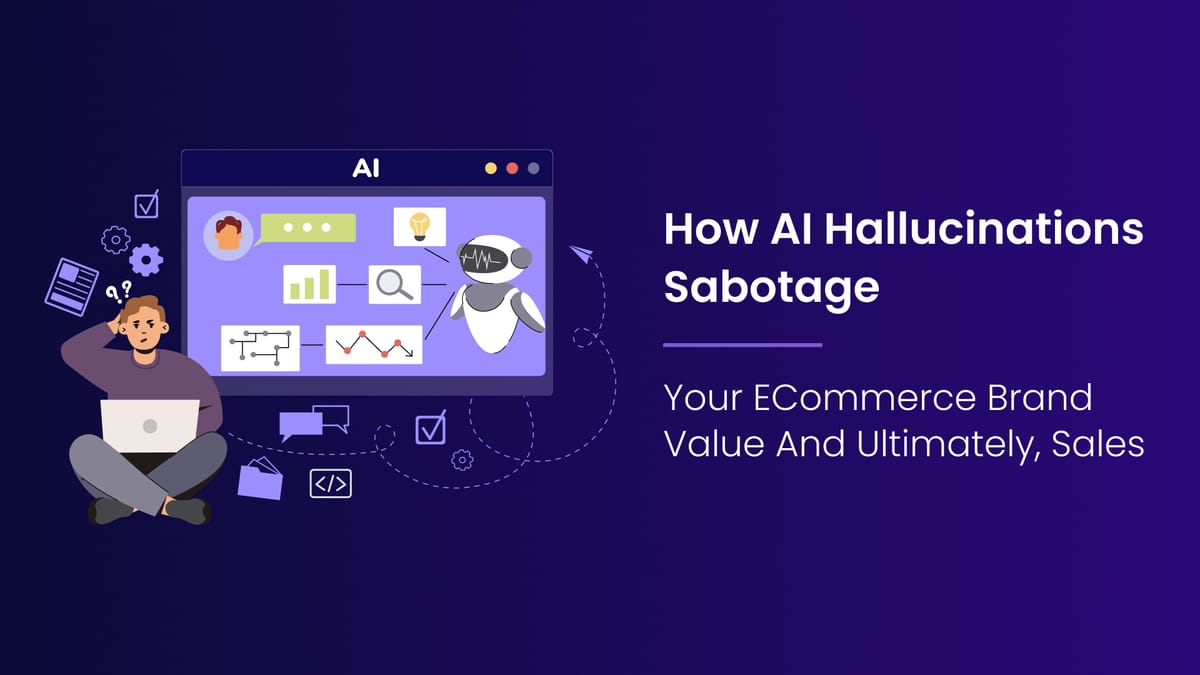
AI is evidently the future of almost everything that we are doing currently. And yes, it goes without saying, it’s going to be at the forefront of the eCommerce industry as well.
While technically, AI is all-knowing, there are still cases where it doesn’t give the correct responses and ‘hallucinates’. Sometimes even generating really funny answers! That’s probably one of the reasons why there’s still some doubt about its adoption across many ecommerce stores.
So what are AI Hallucinations?
AI hallucinations occur when AI systems generate inaccurate outputs or perceptions that are a bit far from reality. While the implications of AI hallucinations extend across multiple domains, I wanted to dive a little deeper into the potential impact on a very important aspect of any eCom store - the brand value.
If you look into it, eCom stores are deploying AI in various capacities - and especially - AI chatbots. This is where users tend to interact the most with the AI.
Most of the time, hallucinations occur because of misinformation.
Imagine a scenario where an eCom brand has deployed an AI chatbot to assist users with their queries, and it self-generates an irrelevant answer as opposed to what the user was actually looking for. This could be because of many reasons - algorithmic glitches, misinterpretation of data, or not being able to fetch the right data at the right time. Imagine the frustration, friction and overall experience of the user in that store! And how it will negatively impact the brand image of that store. The user might go back with a very negative perception and lose their trust and confidence in the brand.
Consider another case, where an eCommerce store’s AI-generated product recommendations are not relevant to the user's needs or preferences. It not only breaks the user’s interaction with the store but also diminishes user experience reflects very badly on the brand's reputation and credibility. As much as this hurts the brand value, what it also affects is - your Sales. Think of how many first-time buyers and repeat customers you might risk losing because they do not trust your brand!
What Causes AI Hallucinations?
So, what can brands do to mitigate the impact of AI hallucinations on their brand image?
Hallucinations in the AI world are very common. In fact, despite being the future of eCommerce, such uncertainty about LLM accuracy is one of the chief barriers to enterprise adoption. That being said, it is possible to mitigate the risk of hallucination. The best way to prevent AI hallucinations is to train your AI properly.
We, at Manifest AI, have guardrails in place to restrict the AI from hallucinations. To dig deeper, we have 3 different layers to make sure AI generates the right answer 99.9% time.
- Intent detection layer: This layer takes the user message, conversation history & store context into account to classify a message into one of the customer intents which we support. We have fine-tuned classification models for this purpose. This fine-tuned model is trained on a data set of various possible customer messages in an e-commerce context which we have collated from real customer conversations across the last 6-7 months.
- Data retrieval layer: Based on the customer intent detected, we fetch the most relevant data (via a mix of semantic & keyword searches) which can help in generating a response. This data retrieval works differently for each intent. For example,
- If a customer shows the 'product search' intent (is looking for a specific type of product), we fetch the most relevant products from the store's catalogue & use them in answer generation
- If a customer is asking something about a particular product, we fetch that product's description, product's meta fields, and other relevant data available on other store pages (like policy pages, FAQ page, blogs etc) or other data which has been added on the client's Manifest dashboard (as FAQs, custom PDFs, custom text etc.)
- If a customer asks about the return policies, we fetch the most relevant pieces of information from the store's policy pages & any other data added by the client on their Manifest dashboard.
- Response generation layer: The final layer takes the customer intent & fetched data into account & generates the required response. Even this response layer is different for each intent.
- If a customer shows the 'product search' intent, the response generation layer uses the top-fetched products, further filters out any irrelevant results (for greater accuracy) and generates a response along with the associated product cards
- If a customer is asking something about a particular product, the response layer uses the fetched information to generate the answer to the user's query. Along with this, we also generate follow-up questions here to make it easier for the customers to keep the conversation flowing and engage customers better
- If a customer asks about the return policies, the fetched data is used to generate the response to the user query. Going forward, we're also adding the ability to return links to relevant pages in this case for further reading as required.
It understands the intent, retrieves the data in a very refined way and then produces a very relevant result. E.g., on a food & beverage brand, if you ask about any healthy oil recipe using healthy oil, it would answer you. But let's say if you ask it, “I have a date night today and I want jewellery or a necklace”, it would say, this is something that's not relevant to either food or the brand or they don’t offer any jewellery item -feel free to explore our other exciting products!
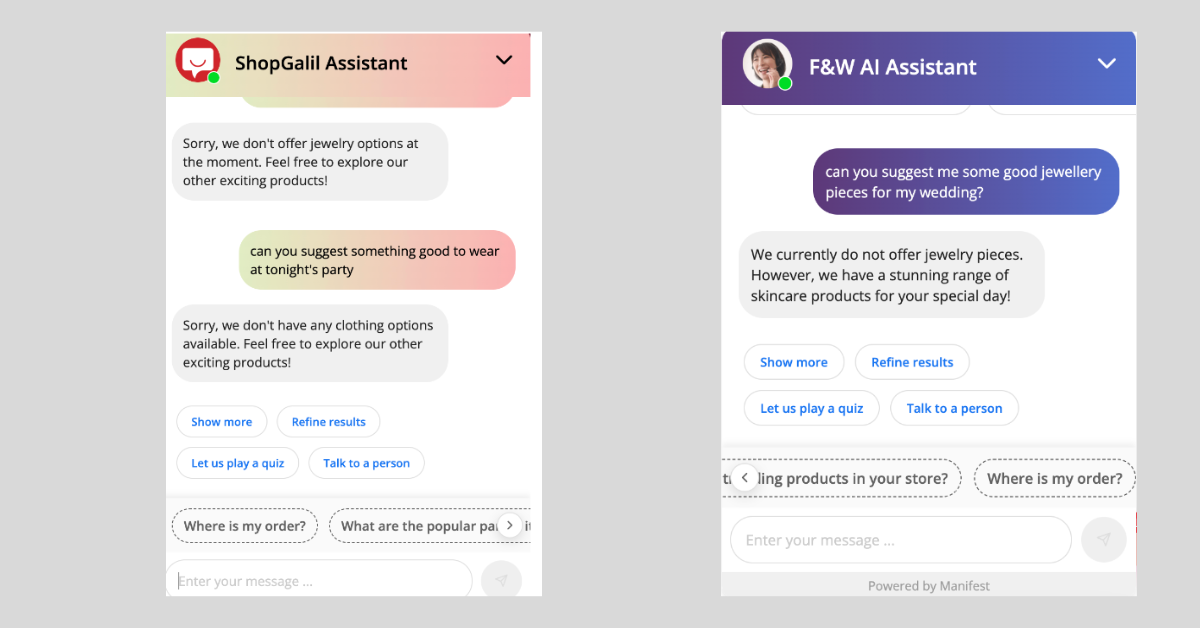
That way, the chances of generating answers on its own reduced drastically with Manifest AI. By prioritising transparency, feeding the data correctly and having strong frameworks - we can effectively mitigate AI hallucinations. This kind of multilayered guardrails can ensure that every visitor gets a personalised answer to any query that they ask the AI Chatbot on your eCommerce store.
However, this is just one way Manifest stands out from other ‘chatbots’! Manifest is more than just a chatbot—it's the ultimate shopping assistant for your e-commerce brand. It engages with your visitors as if you were chatting with them in person at your physical store. Think of it as a dedicated virtual sales rep, there to enhance each customer's shopping experience. If you like the sound of that, see it for yourself!

.png)
